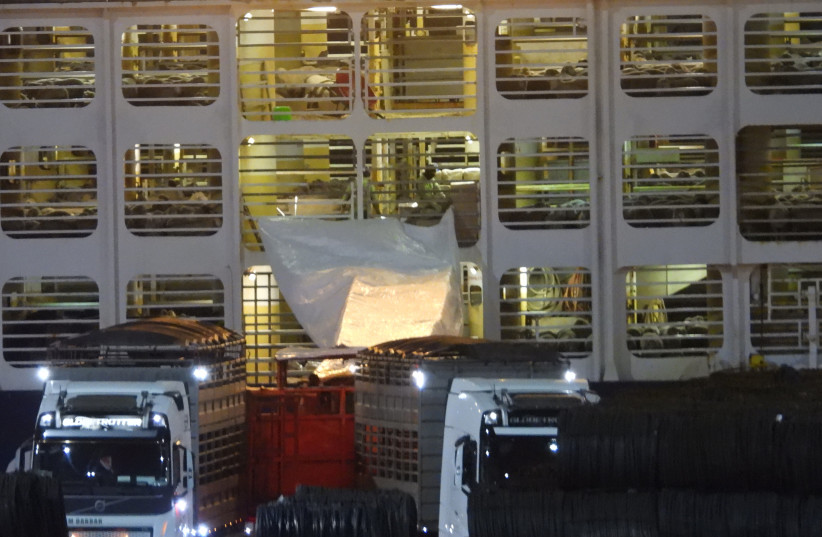The MV Bahijah, a ship carrying approximately 14,000 lambs and calves by exporter Bassem Dabbah, finally docked in Israel last week after a gruelling 74-day voyage that saw extensive rerouting due to Houthi threats.
The journey, initially from Australia, took a detour due to threats from the Houthis, extending the animals' time at sea. The ship was rerouted around Africa, and upon arrival at Haifa port, efforts to document the unloading process were obstructed by a massive screen, raising concerns among animal rights organizations.
They accused the live shipping industry of cruelty, citing previous incidents of mistreatment during unloading procedures, saying that “The livestock shipping industry has broken another record of cruelty – under the watchful eye of the Agriculture Ministry, which is supposed to be responsible for protecting animals.”
The voyage, which faced public outcry in both Australia and Israel, prompted petitions and legal challenges against the Agriculture Ministry.
The incident raises concerns about animal abuse
Despite concerns about animal welfare and the challenging conditions of the journey, including a route change around Africa, the ministry allowed the shipment to proceed.
Critics argue that such journeys, marked by deaths and distress among the animals, highlight the need for stricter regulations or even a ban on livestock shipments.

Globally, there's a growing movement against live animal exports, with various countries taking steps to curb or halt these practices. In 2023 alone, hundreds of thousands of lambs and calves were transported to Israeli ports in live shipments, fueling calls for legislative action to address the contentious issue.
